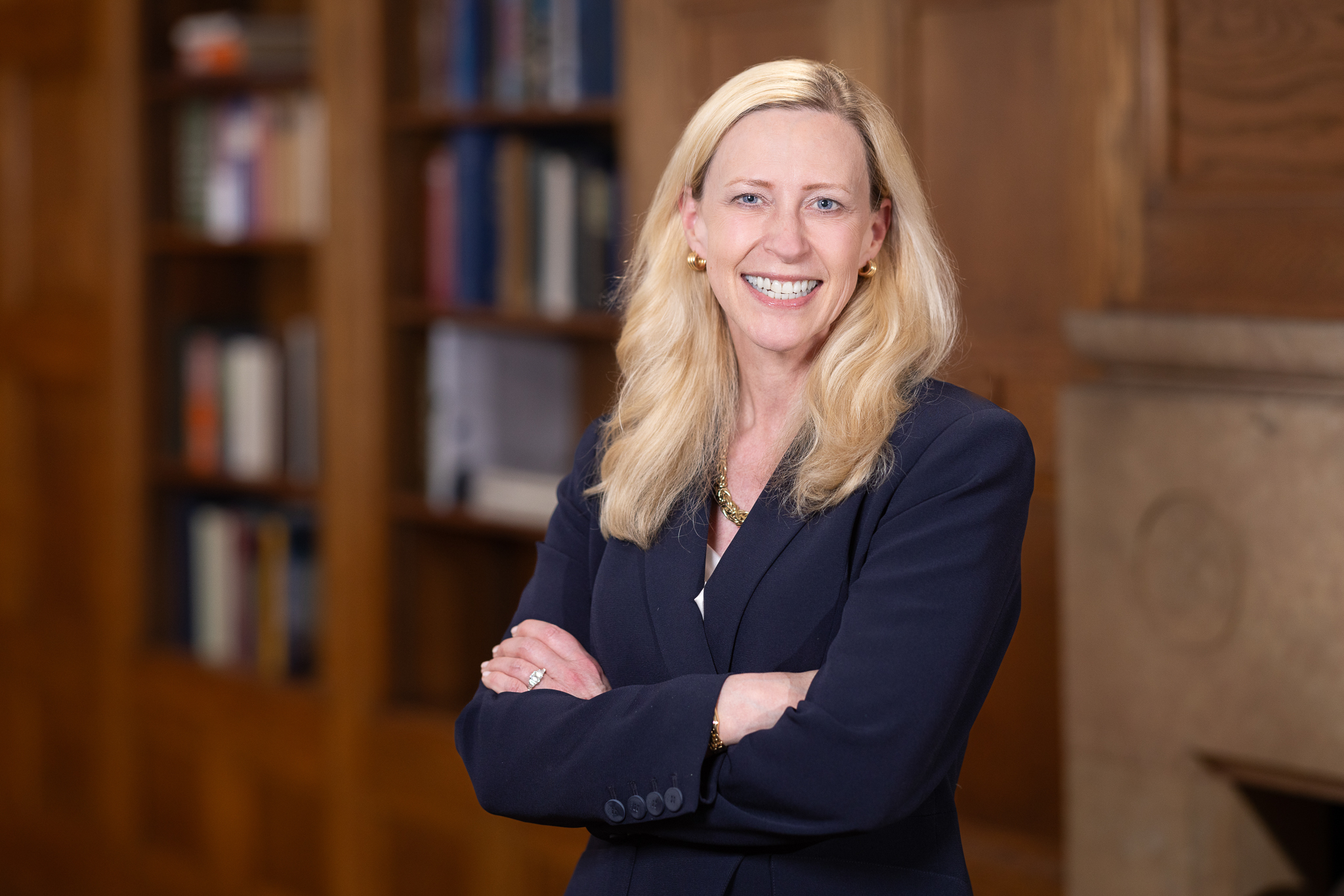McInnis lacks unique academic vision
While she works to develop a vision, President Maurie McInnis will listen to stakeholders and advance the University’s existing science and engineering projects.

Yale News
University President Maurie McInnis said that she does not yet have a unique academic vision for Yale. In an interview with the News on Thursday, she emphasized that instead, for now, she is focusing on listening to community members and propelling the initiatives Yale already has in place.
When asked whether she had to articulate an academic vision for Yale to the search committee when she was under consideration for the presidency, she responded, “not really, not an academic vision that is that distinct.”
McInnis said that when she was under consideration, she stressed her ability and desire to lead the University’s already ongoing science and engineering projects.
“We should be clear that Yale has a very clear set of academic priorities that it is pursuing right now … broadly around our science and engineering strategy,” she said. “When I was hired, it was very clear to me that continuing with those is a really high priority of the board, and that they care that as President, that I am sure that we are implementing those well.”
She said that Yale has not been preeminent in the sciences, aside from life sciences such as medicine, in the way it has in the arts and humanities. As a result, the University has been focusing on strengthening its science and engineering programs. Acting on these priorities, McInnis recently attended a Yale Planetary Solutions summit in New York City and broke ground on a new geothermal energy development on Science Hill.
The University is in its third year of a decade-long project to improve its science and engineering programs. The project will see Yale hire 45 new faculty members and build, as well as modernize, campus buildings.
“Even when I get around to defining a vision,” McInnis said, “it’s not going to in any way change those priorities. We may add things, but my charge was really firstly to ensure that we’re implementing that well, and take time to get to another [vision].”
McInnis has concentrated on meeting with a range of Yale’s stakeholders in the first few months of her presidency in what she has termed a “listening tour.”
She said that since beginning her presidency in July, she’s made over 40 public speaking appearances and has interacted with the Yale community in casual settings as well, including at campus events and lunches with students and faculty.
For McInnis, having a vision for an institution means understanding its “distinctive strengths,” which for Yale is its ability to support interdisciplinary work.
She said that what distinguishes Yale is how it can “bring the full breadth of all disciplines to solving the problem, and that we can create the kind of platform where colleagues from the School of Art through the School of Environment are working together on projects.”
In August, McInnis told the News that she had not made any new hires and had no plans to make changes to the leadership team of the University.
Anthony Kronman, a law professor and the former dean of Yale Law School, said that university presidents have become administrative managers rather than advocates with academic visions.
“It’s been a very long time since we’ve had a college or university president who possessed the intellect and the nerve to speak to his or her own community and to the country at large about the nature and the value of higher education,” Kronman said. “It may very well be that the corporation did not particularly want or feel the need for such a person at this moment.”
McInnis’s first major public act as president was to convene a faculty committee to recommend whether Yale should adopt institutional neutrality.
Andy Lipka ’78, an associate fellow of Jonathan Edwards College and board member of Yale Alumni College, said that having a vision is an integral part of the role of the president.
“You don’t want the president of Yale to just try to survive the presidency,” Lipka said. “Here is one’s chance to make a difference. Yale is a magnificent institution, and a president can take this and take it to greater heights.”
Long-time Yale administrator Sam Chauncey ’57 said he thinks that McInnis’s emphasis on listening signals that she cares about the input of others to manage the University.
He said that sharing the operating management of the school with faculty is an approach termed “shared governance,” which he supports Yale’s president taking.
“I believe she deeply respects the faculty,” Chauncey said of McInnis.
Yale has over 17,000 faculty and staff.







